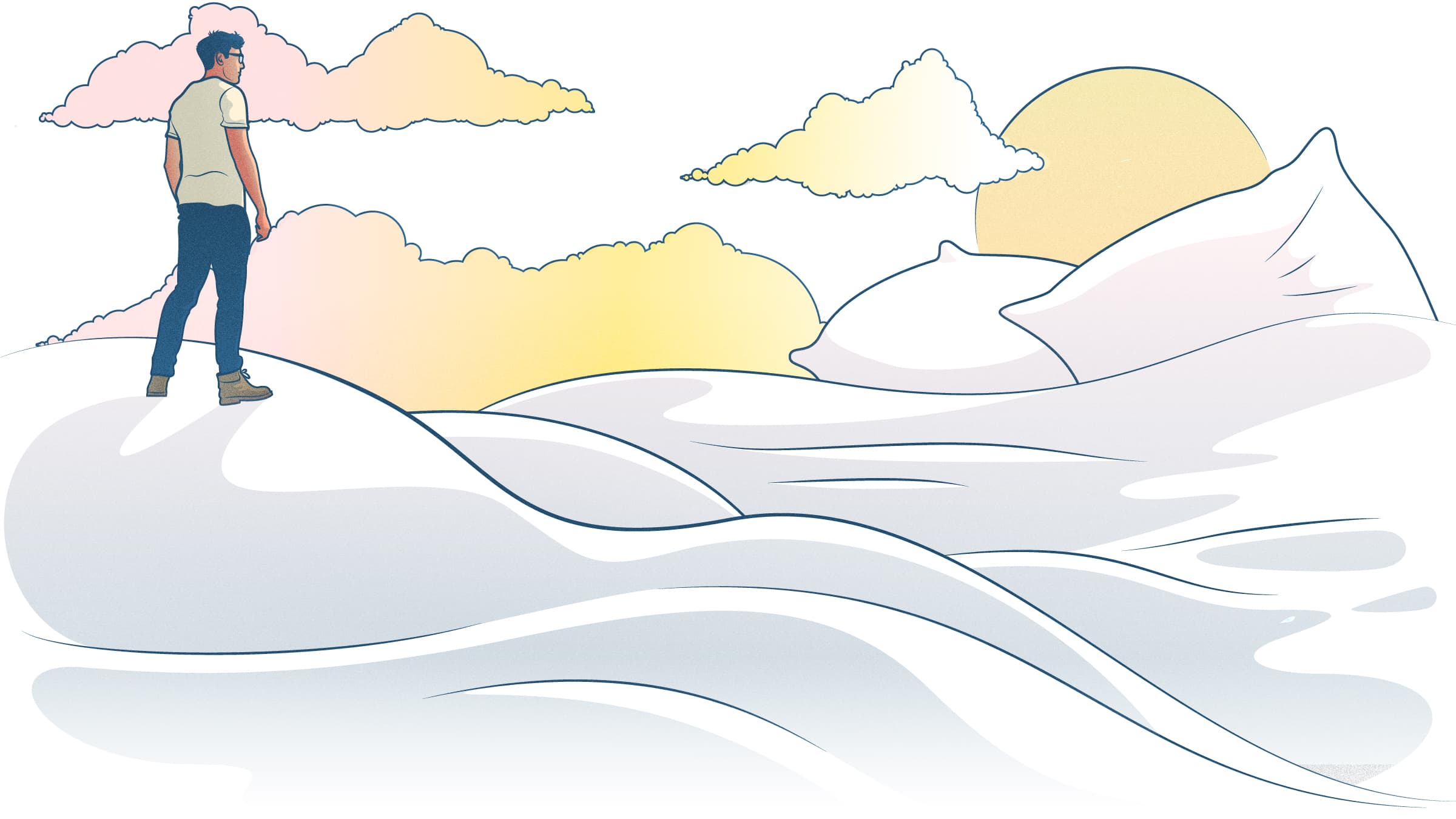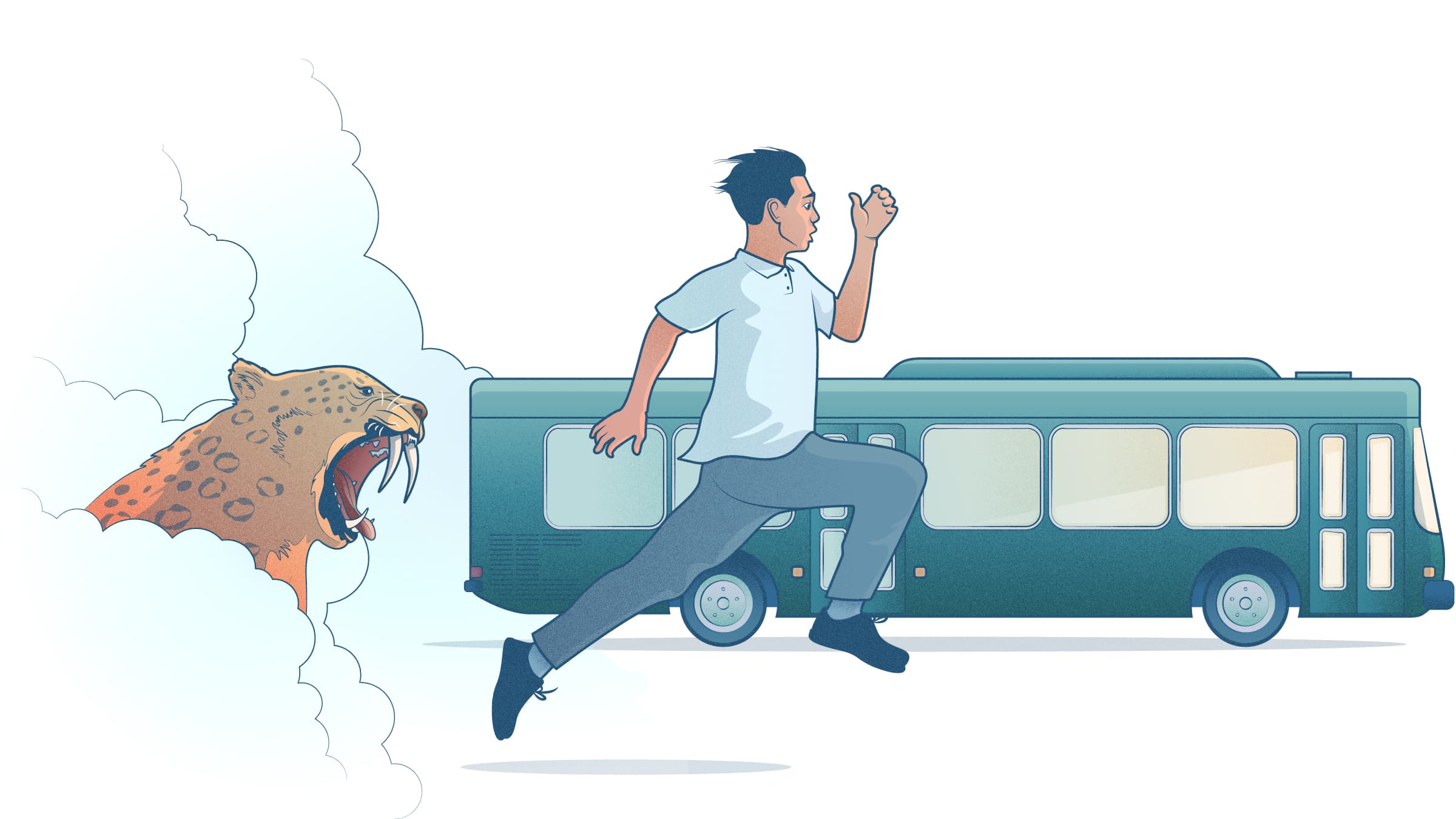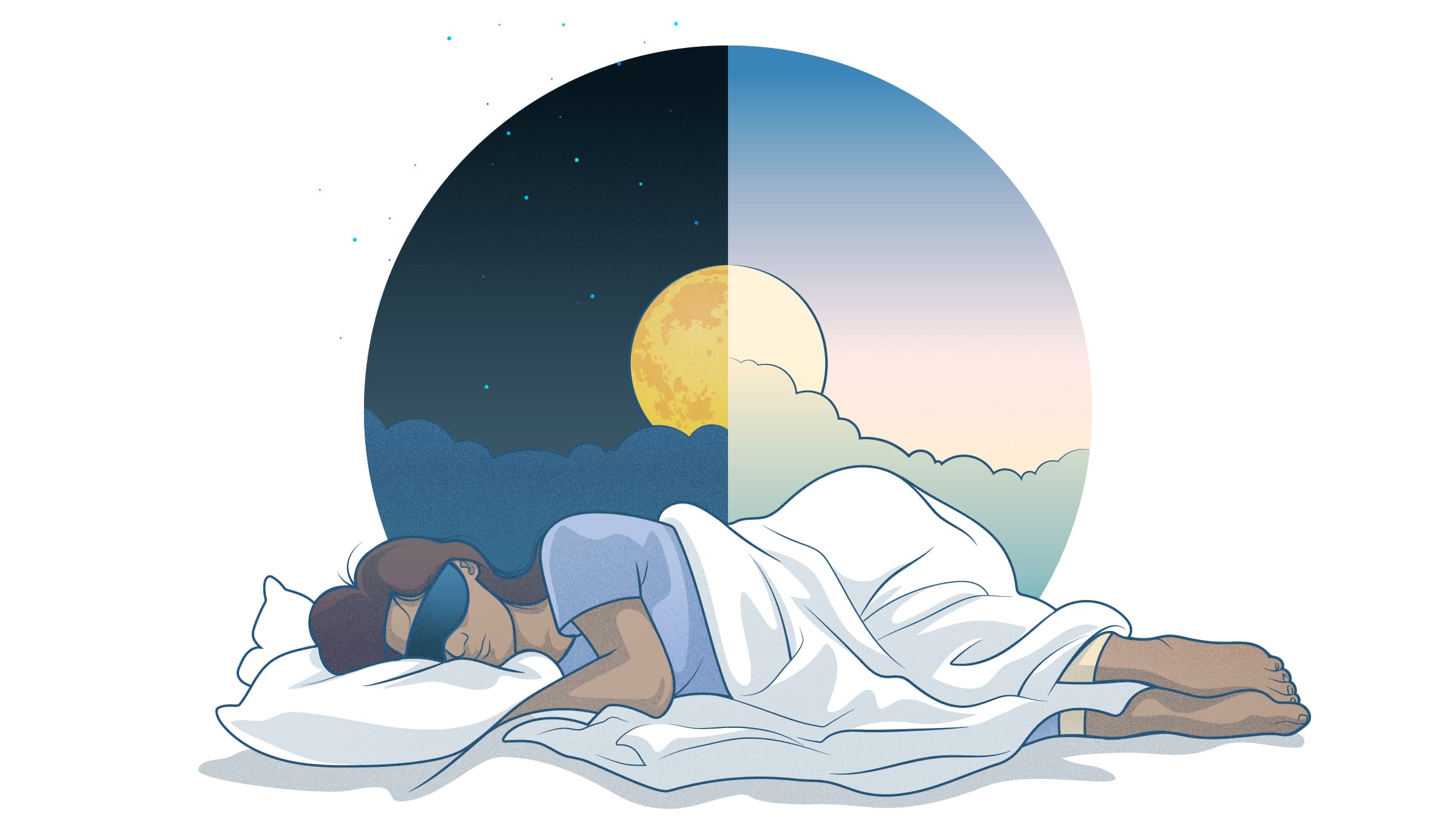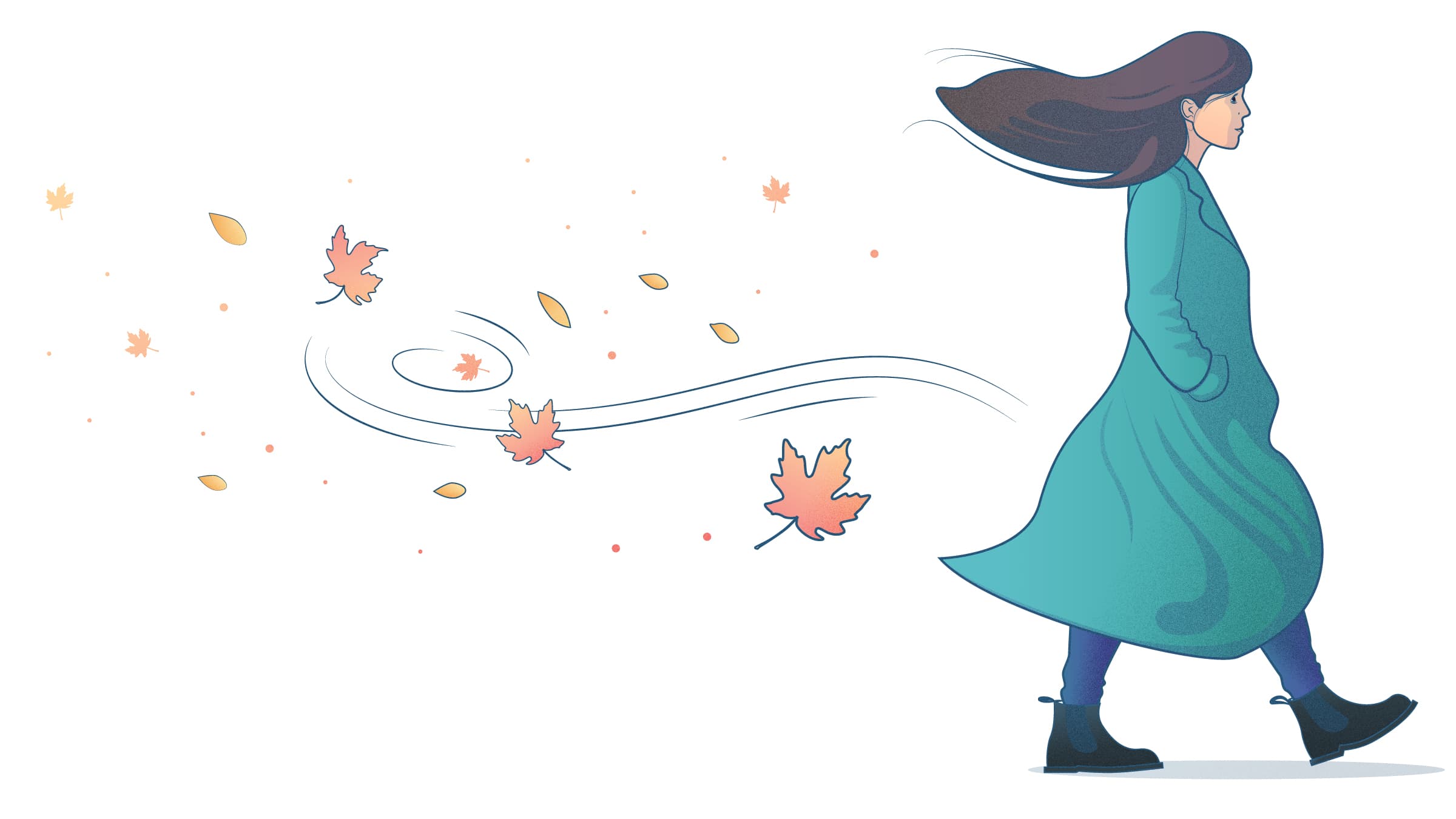
So we talked about acceptance and the confidence that comes with it. We assume that the more challenging your situation, the more difficult this is. Even so, through acceptance, you gain control. You are not your sleep condition. You will find your way to better sleep.
Today, you’ll find one habit that influences your sleep. And you will change that habit, and remain in that change. We’ll be with you along the way and help you keep it up. Don’t worry. You’re not alone.
To find this habit, you need to know that what we do when we’re awake, influences the quality of our sleep at night. Our sleep drive – and we’ll talk more about that in the future – makes us feel sleepy. It helps us know when it’s time to sleep, but it can be suppressed by other signals if you don’t treat it right. It’s still there, but you’re just not feeling it.
What we do when we’re awake, influences the quality of our sleep at night.
Based on what our users tell us from their time with Sleep Cycle, we have together with Martin Reed and his experience with helping over 5,000 clients with insomnia, compiled a list of habits that we believe are likely to influence your sleep. One of these habits will resonate more with you, and that’s the one you should pick.
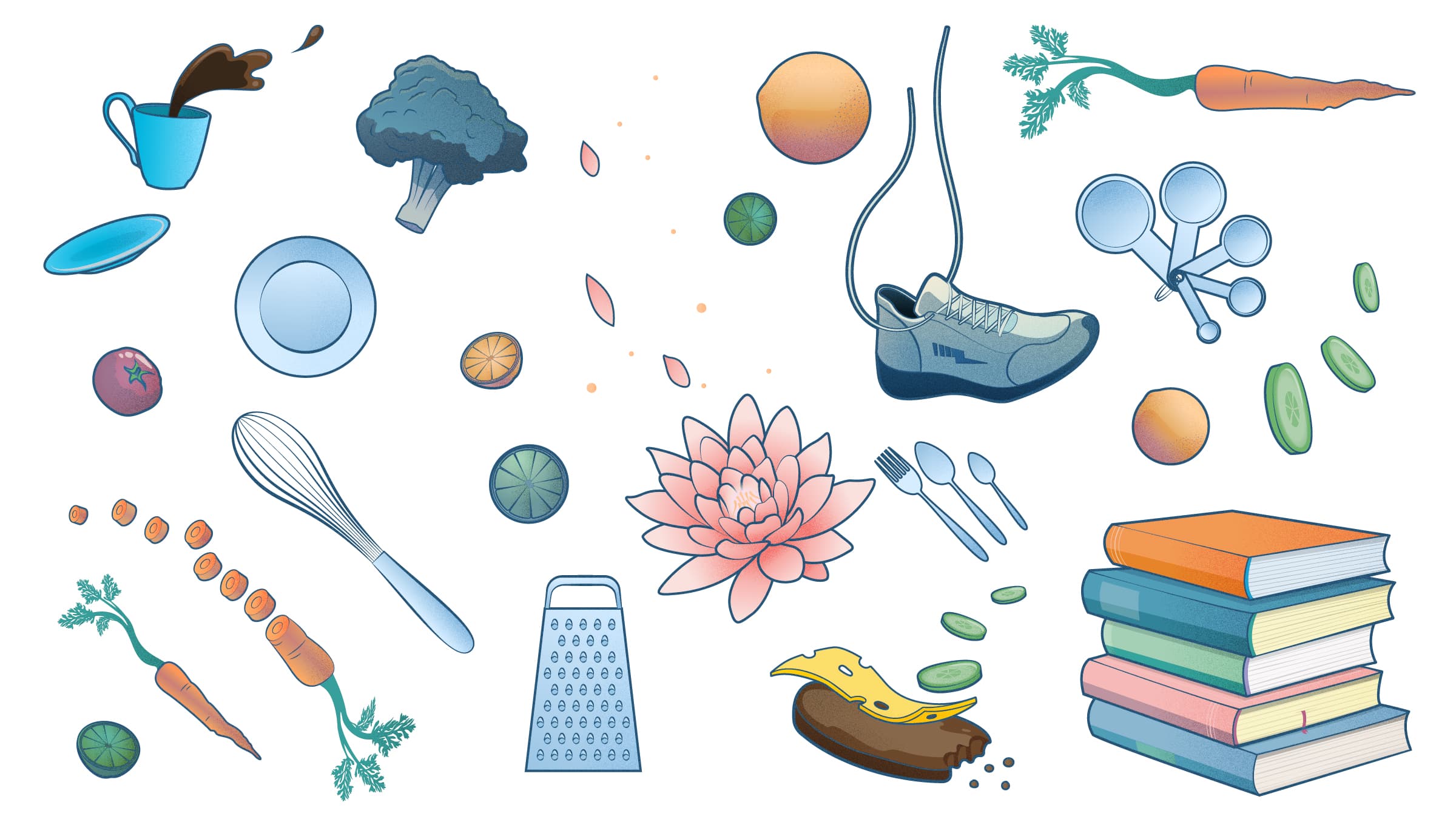
We should underline that this is basic sleep hygiene. If you hit the bullseye, you might very well experience a positive effect already tonight. But if your condition is more severe, you might’ve tried these things already. Maybe the idea of skipping coffee in the afternoon and exercise more is close to insulting. Even so, this is more than just the effect of that changed habit. It’s about you taking control over your situation. You’re in charge and we’re just getting started. The positive effects will come.
Alcohol
Alcohol maybe puts you to sleep faster, but it causes unrest. Whatever sleep you’re getting, it’s not as restorative. You’ll feel weary, even if you clocked your hours. You can still enjoy a glass or two to your dinner, but don’t consider alcohol a sleep aid and make sure you don’t drink three or four hours before bedtime.
Coffee
Coffee is a treat for body and mind, but part of this treat is that it fires you up. When bedtime approaches, you want the opposite. Being tired is a good thing and coffee works against that. Once you’ve had a cup, it takes many hours before the caffeine leaves your body. So from now on, no coffee after 0200 PM.
Daylight
When you’re outside in daylight, you regulate your body’s biological clock, and this can make it easier to sleep at night. The earlier you expose yourself, preferably half an hour in a stretch, the more likely you are to feel sleepy when evening comes. So get out for half an hour’s daylight, from now on, even if it’s cloudy.
Screens
When bedtime approaches, be careful with your screens. Stuff on your phone or tablet can stir you up in equally positive and negative ways, but no matter, they block your sense that it’s time to sleep. So be mindful with your screens in the evening and engage in things that help you relax and wind down.
Low-intense exercise
You don’t need the gym to benefit from exercise. A brisk walk, enough to get your pulse going, exhausts your body in a positive way. Aim for half an hour. If you can’t get it all at once, slice it up in thirds of ten minutes or halves with a quarter each. Any movement, no matter how brief, is worth something.
Late night snacking
Snacking before bedtime tells your body that there’s work to do in the digestion department before sleep. If you’re slightly hungry but not starving, your rest will be more efficient when you go to bed. For most, this means no eating two or three hours before bedtime.
Like we said, this is sleep hygiene stuff. Maybe it’s a revelation to you, or maybe you’ve been here, tried that and figured you need the heavier stuff. We’ll get to that soon. But until then, pick one of these habits and do your best to embrace change.
These kind of adjustments can be hard. You might think that you’ll fail before you succeed. That’s not only okay but perfectly natural. It’s the best way to learn, really. Failing isn’t even the right word for it. It’s training, and training takes time. You’ll stumble but you’ll get up again, and the only thing you shouldn’t be is hard on yourself. It won’t help. It’s not fair on you. And it’s downright wrong. Like anyone in training, you deserve encouragement.
So best of luck with your training. We’ll see you in the next one.
Take care, Sleep Cycle with Martin Reed from Insomnia Coach®
BRIEFLY
What you do when you’re awake, influences the quality of your sleep at night. If you pick one habit that has influence over you, and get to work on changing that habit for the better, you’re well on your way to better sleep. You’re not failing. You’re training.
